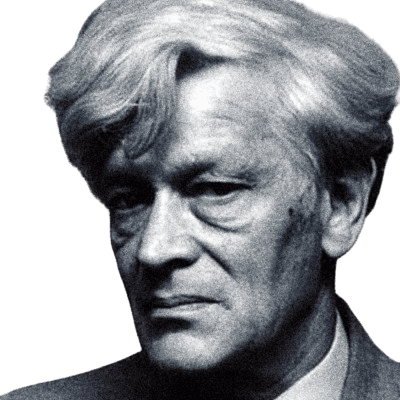Life and achievements
Early life
Edward Palmer Thompson was born in Oxford, England, on February 3, 1924, into a family of intellectuals and political activists. His father, Edward John Thompson, was a Methodist missionary and poet close to the famous Indian poet Rabindranath Tagore, while his mother was a political activist. The death of Thompson’s brother, Frank, during World War II deeply affected him and fueled his sense of justice and political engagement.
Thompson attended Kingswood School in Bath and later Corpus Christi College at Cambridge. At Cambridge, he became a member of the Communist Party and a committed socialist activist. His political upbringing, alongside his family’s religious and social activism, deeply shaped his future intellectual life. After World War II, Thompson returned to academic work and became involved with the Communist Party Historians' Group in 1946, contributing significantly to Marxist history.
Over time, Thompson grew disillusioned with orthodox Marxism, especially Soviet totalitarianism, and in 1956, he and many others left the Communist Party in protest of the Soviet invasion of Hungary. This marked his shift toward the New Left and his commitment to a humanistic form of socialism.
Legacy
E. P. Thompson’s influence on history, political theory, and activism is profound and enduring. His most important work, The Making of the English Working Class, is considered a classic of social history. Thompson revolutionized the way historians understood class and working-class consciousness, focusing on the everyday lives of ordinary people. His work rejected deterministic approaches to history, instead emphasizing the agency and culture of the working class.
Thompson's redefinition of class as a process rather than a static structure has become a key contribution to historical and political analysis. His approach inspired generations of labor historians, particularly in the United States, who applied his methods to study their own national histories. Thompson also impacted cultural analysis, with scholars like Stuart Hall drawing on his ideas to study the intersection of culture and politics.
Thompson’s political activism, especially his involvement with the Campaign for Nuclear Disarmament, solidified his role as a public intellectual committed to social justice and peace. His 1980s pamphlet Protest and Survive was a rallying cry against nuclear weapons and contributed to shifting the public debate on nuclear disarmament.
Thompson also critiqued the commercialization of academia in his book Warwick University Limited, where he warned of the growing influence of business interests on universities. His defense of academic freedom remains relevant today, as debates about the role of higher education continue.
Despite his criticisms of some aspects of Marxism, particularly Althusserian structural Marxism, Thompson remained a committed socialist until his death in 1993. His work, speeches, and activism continue to inspire intellectuals and activists seeking to address issues of justice and human dignity.
Milestone moments
Oct 30, 1946
The Creation of the Communist Party Historians' Group
E. P. Thompson played a central role in forming the Communist Party Historians' Group, aiming to create a Marxist historiography focused on the lives of ordinary people.
The group produced the journal Past and Present, which significantly influenced historical discourse.
This group began Thompson’s lifelong commitment to "history from below," stressing the importance of class consciousness in historical analysis.
Jun 26, 1956
Break with the Communist Party
In 1956, after the Soviet suppression of the Hungarian uprising, Thompson and many of his fellow Party members resigned in disgust at Stalinism.
This marked Thompson's shift from orthodox Marxism to a more humane socialism, grounded in democracy.
After leaving the Party, Thompson became a leading figure in the New Left, advocating for a more just and humane form of socialism.
Jul 26, 1963
The Making of the English Working Class
Thompson’s landmark work, The Making of the English Working Class, was published in 1963 and revolutionized the study of social and labor history.
The book redefined class as a process shaped by collective experience, highlighting the agency of the working class.
This work cemented Thompson’s reputation as one of the most influential historians of his time and remains essential reading in social history courses.
May 16, 1971
Warwick University Limited
In 1971, Thompson left the University of Warwick in protest against the growing commercialization of universities, which he critiqued in his book Warwick University Limited.
The book exposed the influence of business interests on academic institutions and the erosion of academic freedom.
Thompson’s critique remains relevant today in discussions about the role and purpose of higher education.
